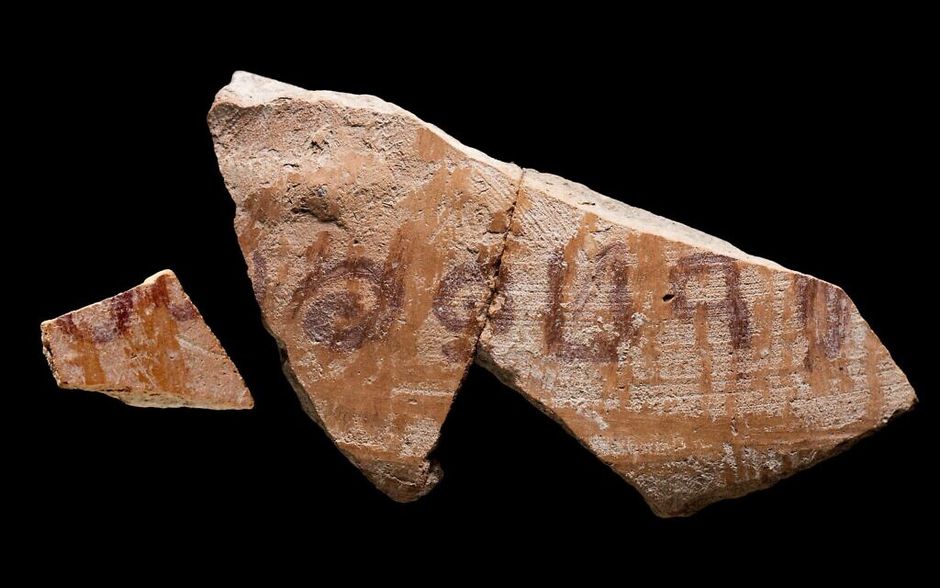Inscription from time of biblical judges unearthed in Israel
The “extremely rare” inscription from around 1,100 BCE bears the name Jerubbaal, which in the Book of Judges is an alternative name for Gideon.
Israel Antiquities Authority · JERUSALEM · 13 JULY 2021 · 18:55 CET

A five-letter inscription dated around 3,100 years ago with the name of a biblical judge was unearthed in the excavations at Khirbat er-Ra‘i, in the Southern district of Israel, the Antiquities Authority (IAA) announced this Monday.
The inscription bears the name Jerubbaal, which “is familiar from biblical tradition in the Book of Judges as an alternative name for the judge Gideon”, explained Professor Yosef Garfinkel and archaeologist Sa‘ar Ganor from the Hebrew University of Jerusalem.
They added that “in biblical tradition, Gideon is remembered as triumphing over the Midianites, who used to cross over the Jordan to plunder agricultural crops. The Bible says that Gideon organized a small army of 300 soldiers and attacked the Midianites by night near Ma‘ayan Harod”.
An “extremely rare” inscription
According to the researchers, “inscriptions from that period – the 12th-11th century BCE – are extremely rare. All the dating has been carried out through both pottery typology and radiocarbon of organic samples found in the same archaeological layer”.
They acknowledged that “the name of the Judge Gideon was Jerubbaal, but we cannot tell whether he owned the vessel on which the inscription is written in ink”, however, “it would be very important even if was just letters without meaning. But in this case, we also have a name from the biblical period”, pointed out Garfinkel.
Bible and history
This is the first time that the name Jerubbaal has ever been found outside the Bible in an archaeological context, so that the discovery offers important insights on the connection between the biblical text and historical reality.
“As we know, there is considerable debate as to whether biblical tradition reflects reality and whether it is faithful to historical memories from the days of the Judges and the days of David”, said the archaeologists.
That is why "the fact that identical names are mentioned in the Bible and also found in inscriptions recovered from archaeological excavations shows that memories were preserved and passed down through the generations”.
Canaanite and Judahite cultures
The place where the inscription was discovered is located between Kiryat Gat and Lachish, about 70 kilometres southwest of Jerusalem. Canaanite Lachish was destroyed around 1,150 BCE and remained abandoned for about two centuries.
The inscription shows that “the alphabetic script was preserved at Khirbat er-Ra‘i, roughly 4 km from Lachish and the largest site in the area at the time of the Judges, during the transition from the Canaanite to the Israelite and Judahite cultures”, explained the IAA.
“I believe that the site was mostly inhabited by Canaanite refugees, who came to live under Philistine hegemony” and “the inscription is Proto-Canaanite, as demonstrated by the morphology and stance of the letters”, so that it “serves as a textual bridge for the transition from the Canaanite to the Israelite and Judahite cultures”, underlined the archaeologists.
Published in: Evangelical Focus - culture - Inscription from time of biblical judges unearthed in Israel
